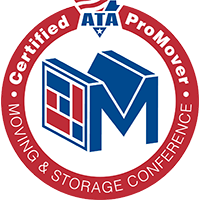They’re out there. And they can make your life miserable.

I’m talking about rogue movers— moving companies that look legitimate on the surface but in reality are about as ruthless as a tiger shark on an empty stomach. Such companies may hold your goods for ransom, refuse to make good on losses they are responsible for, even disappear with your things like the proverbial thief in the night.
The professional moving and storage industry has gone to great lengths to educate and protect consumers from getting scammed by such operators. But P. T. Barnum must have been right, because I continue to read and hear horror stories about unsuspecting consumers being victimized.
This is the first in what I plan to be a series of blog entries designed to help you avoid getting scammed. (Here is where I could say, simply, make sure you hire Weleski. While I believe that is a good idea, I don’t want to presume you will—so I will continue my entry in hopes of making you a better informed consumer and earning your business.)
I’ll get to some specifics in a moment, but first I want to share the single most important idea you can use to keep from becoming a victim yourself. This idea applies not just to moving, but to practically every product or service you will ever buy. Here it is: “If the price seems to good to be true, then it probably is not true.” If you get a low-ball price, expect trouble.
Before you hire a mover, perform a background check on the company. Ask them for references. Call those people and ask whether they were satisfied with their moving experience. Check with the Better Business Bureau. Do the mover’s customers have unresolved complaints? Check with your state’s moving association. Make sure the company is a member in good standing. (Here’s a list of such associations, compiled by the US DOT.)
I think one of the best safeguards is the ProMover credential administered by The American Moving & Storage Association. Movers who carry the ProMover designation have passed a background check and are bound by the AMSA’s Code of Ethics. (As you may guess, Weleski carries the ProMover credential.)
Before you hire a mover, be sure you aren’t dealing with a broker. A broker is simply a middle-man who buys and resells the actual moving services to you. Such a scenario is filled with danger, because enforceable consumer protections are poor or lacking. When you deal with a real mover, you have extensive protections. And, by law, your mover is required to provide you a copy of them. (FYI, here’s a link to this information, courtesy of Atlas Van Lines.)
Keep in mind that good companies are proud of their good reputation. They answer the phone with the name of their company. And they are proud to display their name on their offices, trucks, and uniforms. If you see no identity except, perhaps, a magnetic sign on the truck, beware.
Tags
Subscribe to Weleski Transfer Inc's Blog










Comments